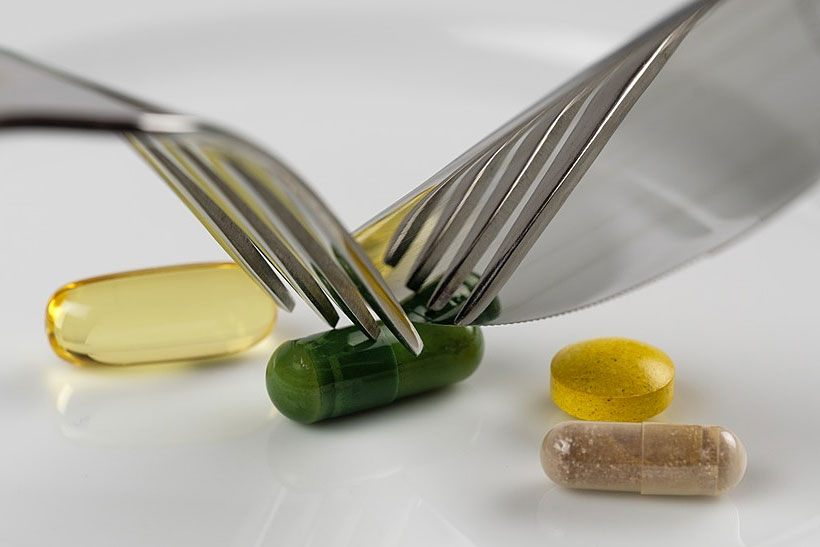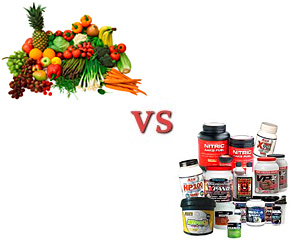- Like
- SHARE
- Digg
- Del
- Tumblr
- VKontakte
- Flattr
- Buffer
- Love This
- Save
- Odnoklassniki
- Meneame
- Blogger
- Amazon
- Yahoo Mail
- Gmail
- AOL
- Newsvine
- HackerNews
- Evernote
- MySpace
- Mail.ru
- Viadeo
- Line
- Comments
- Yummly
- SMS
- Viber
- Telegram
- JOIN
- Skype
- Facebook Messenger
- Kakao
- LiveJournal
- Yammer
- Edgar
- Fintel
- Mix
- Instapaper
- Copy Link
 Most people are hesitant when it comes to taking good care of their health. For them, it is just a luxury and additional expense.
Most people are hesitant when it comes to taking good care of their health. For them, it is just a luxury and additional expense.
Others believe that they do not need to worry yet because they are still young and healthy. Sad to say, they will only realize the value of their health when the going gets rough, the medical bills stack up and further debt sets in. So it is very important to take care of health right from the start. You can find good tips for maintaining a healthy body at sites such as the Rome foundation.
Many who neglected their health will one day realize that their medical bills are much more expensive than if they had simply bought healthy food and vitamins and exercised regularly during their youthful years.
To stay healthy, you will need to exercise regularly, eat good food and take supplements. This helpful guide will provide some insights into whether food or supplements are more cost-effective so you can prevent your expenses from adding up to save yourself from unbearable loans or collections.
Let’s take a look…
Nutrients from Food: A Brief Look
 Originally, eating healthy food was the primary source of nutrients for our body. Healthy food selection would typically include fruits, vegetables, fish, lean protein sources, moderated intake of fat and sugar, and high in fiber diets.
Originally, eating healthy food was the primary source of nutrients for our body. Healthy food selection would typically include fruits, vegetables, fish, lean protein sources, moderated intake of fat and sugar, and high in fiber diets.
The nutritional value of these food items is very high, especially so during the times of our grandparents. Many would grow fruits and vegetables within the house yard and enjoy the fresh harvest when it’s already picking season. Thus, older generations typically had healthier foods when it comes to fulfilling their nutritional needs.
However, during those times, the quality of their environment was completely different from the present. Before, there was less pollution. Bodies of water and the air were also cleaner. Forests and mountains were still thick with trees and other greeneries. There was no global warming yet which maintained the freshness of plants. Lands were cultivated which made it more suitable and healthier for seedlings to be planted. In other words, the healthy environment has contributed much in producing healthy food with high nutritional value.
At present, the world is suffering from various types of pollution on air, in seas, land and all over the place. Food products, even from the farms and gardens, which are supposedly fresh and virgin, are either exposed to chemicals or genetically modified. As a consequence, the nutritional value of these food items has become very low. This makes food insufficient in providing nutrients for our body.
Nutrients from Supplements: A Brief Look
 The crisis in the environment is one of the factors that contributed to the downgrade of foods nutritional value. This lead to the discovery of vitamins which can be obtained through synthetic processes in the form of daily vitamins or dietary supplements. These can supply nutrients for our body which food can’t always provide.
The crisis in the environment is one of the factors that contributed to the downgrade of foods nutritional value. This lead to the discovery of vitamins which can be obtained through synthetic processes in the form of daily vitamins or dietary supplements. These can supply nutrients for our body which food can’t always provide.
Large amounts of food must be consumed in a day for our bodies to be filled with enough nutrients we need. This implies that you have to become an eating machine just to be healthy. This can be quite expensive. This is where supplements come in. To become healthy in today’s modern world, you need to take supplements in addition to food.
Dietary supplements often share a similar composition with drugs and medicines. However, supplements are often regarded as food substances, but like medicines, most supplements must be taken after a meal in order to set for the base on which the supplement can add up. This is also to avoid acidic reactions brought by an empty stomach.
Likewise, excessive consumption of supplements can lead to potential risks. Our bodies have their own limits when it comes to vitamin and mineral intake. Plus, there are certain vitamins that when excessively taken might result in poisoning. It can also damage some vital organs such as the liver, kidney, heart, and even our brain in some cases.
Meanwhile, taking supplements may not cost you so much because you just need to add a small sum of money for you to have a supply of dietary supplements.
However, do not assume that all supplements sold on the market are good and safe for you. Be mindful of the precautions. First, you have to check if the supplements displayed in a store are safe. You can do this by reading reviews made by scientists and experts regarding the products’ efficiency and potency, and supplementing them with user reviews.
Do not just be fooled by marketing hype made by celebrity endorsements, success stories, and false claims. Finally, consult your physician before buying a particular brand to know its effects on you.
Supplements vs Whole Food: Both Are Required
 Both supplements and whole foods are necessary today for most of us if we want to properly fulfill our nutritional requirements for peak health.
Both supplements and whole foods are necessary today for most of us if we want to properly fulfill our nutritional requirements for peak health.
This is true primarily because our modern diet simply lacks many of the nutrients our body needs to be healthy.
The quality of our foods have also been degraded compared to previous generations thanks to less than desirable environmental and other factors which have taken much of the nutritional value out of our foods.
Which is More Cost-Effective?
 Because the answer is you need both to maintain peak health, cost-effectiveness isn’t really important here. I know this likely wasn’t the answer you were looking for, but the reality is that most of us will need to “supplement” our diet with supplements (at least from time to time) to maintain peak health.
Because the answer is you need both to maintain peak health, cost-effectiveness isn’t really important here. I know this likely wasn’t the answer you were looking for, but the reality is that most of us will need to “supplement” our diet with supplements (at least from time to time) to maintain peak health.
Good food such as a high fiber diet, fruits and vegetables, and fish can provide nutrients for our body. However, the dramatic degrade in our natural environment has affected so much the decrease in the nutritional value contained by foods. This requires reinforcements by taking up dietary supplements.
Supplements are synthetically manufactured collections of vitamins that supply nutrients to our body of which food has been limited to. This means that food and supplements are mutually beneficial to our health. However, supplements must be taken in moderation and as needed only. Buy only the supplements that are scientifically evaluated by third-party experts.
In conclusion, your health is more important than the cost required to maintain it. By eating a well-balanced diet and filling in any nutritional deficiency via supplements, you can prevent a laundry list of medical expenses and improve the quality of your life, especially as you age.
The Bottom Line
At the end of the day, the most cost-effective measure is when you seriously take care of your health even when you are still young and healthy. After all, health is your most prized investment. In today’s world, you simply cannot put a price on your health. Eat quality food and balance it out with quality supplements for the best results and long lasting health.
About Shannon Clark
Shannon holds a degree in Exercise Science and is a certified personal trainer and fitness writer with over 10 years of industry experience.

